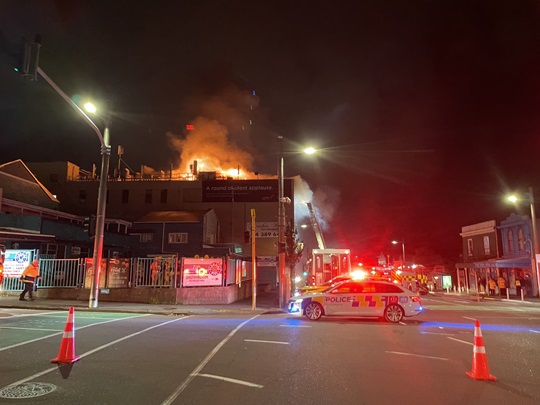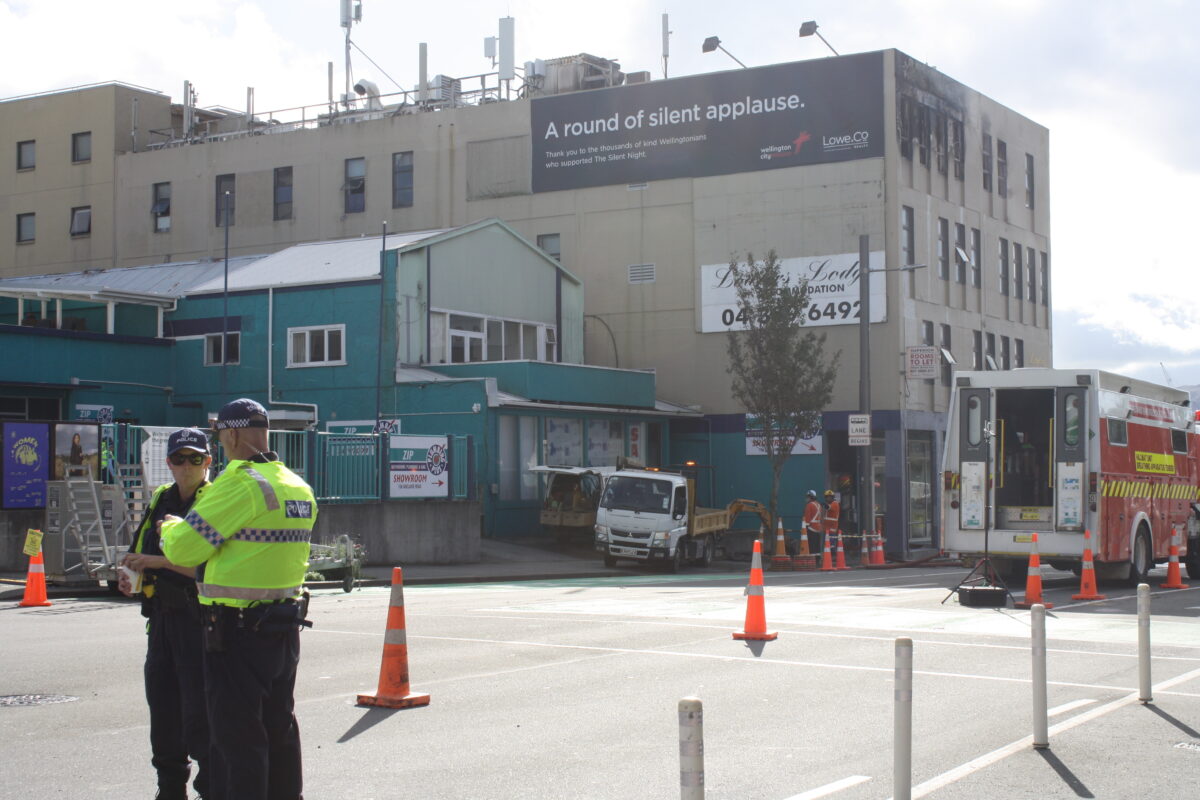Capital, Coast and Hutt Valley Te Whatu Ora confirmed “a number” of their staff lived in Loafers Lodge, a three-storey, 92-room hostel in Newtown, very close to Wellington Hospital.
On Tuesday afternoon, a spokesperson said: “As far as we are aware, all of our staff who lived at Loafers Lodge have been accounted for”.
A total of 52 people were rescued from the blaze, including five residents from the roof of the lodge.
‘Nothing happened there, it was a safe place for everyone to stay and there was light there all the time — especially for shift workers. It was safe for me to go at 11pm at night or midnight . . .’
At a media briefing on Tuesday afternoon, police said an extensive scene examination would begin tomorrow, when the site was safe.
About six police staff were working on Operation Rose to establish who was at the lodge on Monday night, and those still unaccounted for.
They are urging anyone who was staying in Loafers Lodge in recent days and is safe — or anyone concerned for someone — to contact police.
A ‘safe and cheap’ option for workers
Kaitiaki Nursing New Zealand is aware of at least one nurse who escaped the fire at the hostel, which was a popular short-term accommodation option for migrant nurses, along with a range of hospital staff.
A Wellington nurse and former Loafers Lodge resident said after hearing about the fire, she had contacted one nurse, an acquaintance who had lived at Loafers Lodge for several years — and found she was safe and had escaped the fire. “She was fine, she said they were altogether at a Newtown hall.”
The nurse told Kaitiaki she stayed at Loafers for a few months in 2012, after arriving in New Zealand from India.
“It was very handy, close to the hospital, and there were people around — it was a safe space to stay,” she said. It was cheap, safe and convenient — she paid about $220 per week for a room, shared kitchen and bathroom.
“It was great for me — it felt very safe,” she told Kaitiaki. “It was a bit of a shock to hear [about the fire] because I used to live there.”
Loafers Lodge was a popular option with migrant nurses and a range of health workers, particularly the first and ground floor, where the professionals tended to stay, she said. Migrant nurses tended to stay just for a few weeks or months until they found more permanent accommodation or their families joined them, she said.
‘It was a bit of a shock to hear [about the fire] because I used to live there.’
“Nothing happened there, it was a safe place for everyone to stay and there was light there all the time — especially for shift workers. It was safe for me to go at 11pm at night or midnight, it was fine.”
On the higher levels, however, there had been reported thefts and were more “random” occupants.

During her stay at the lodge, the smoke alarms would go off “quite often”, requiring management to turn them off, she said.
Staff working overnight at Wellington Hospital described treating burn victims from Loafers. There were many minor injuries but also one person with major burns who was transferred to Hutt Hospital.
Hospital staff also said there were at least five admissions to the emergency department, mostly for burns and smoke inhalation, but also one broken ankle suffered by a resident who jumped from a window to escape the fire.
The lodge’s website says: “We boast the city’s most practical and cost-effective rooms – especially if you want to stay near to the Wellington Hospital.”

Tōpūtanga Tapuhi Kaitiaki o Aotearoa NZNO board member, mental health nurse and Wellington resident Grant Brookes, said some mental health inpatients were discharged to the lodge, when rooms were available.
He said it was extremely difficult to find affordable housing for patients, without a permanent address and a lack of resources, due to a severe housing shortage in the city.
“[The fire] has the potential to further delay discharges for some of the tangata whaiora under mental health services in the region.”
Wellington Mayor Tory Whanau said the fire had left 50 lodge residents displaced. Alternative accommodation had been arranged for 20 fire survivors so far.




